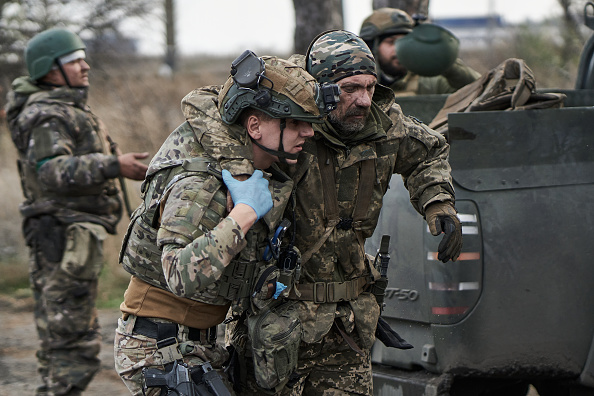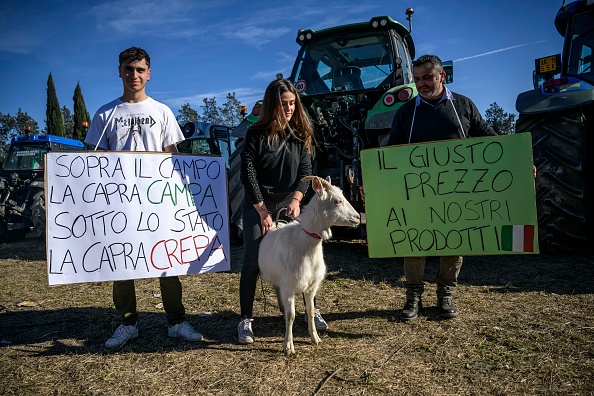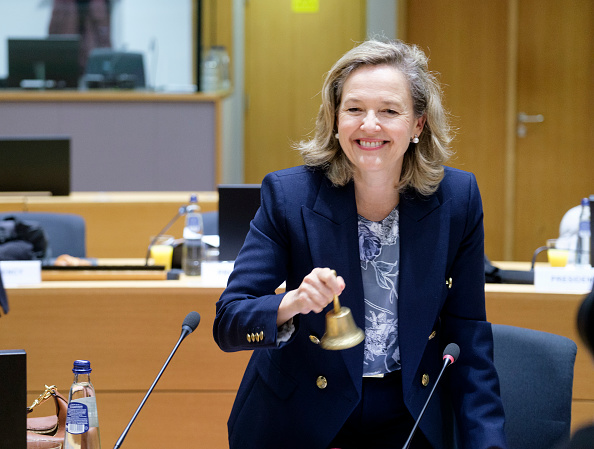A worsening German-French spat over Ukraine appears to risk a crippling of the European Union’s Ukraine arms fund.
The European Peace Facility (EPF) reimburses countries for weapons they provide to Ukraine and is funded outside the main EU budget.
Currently, it is overdrawn and needs replenishing. At a February 28 meeting of the European Council, ambassadors saw a proposed €5 billion top-up founder amid French and German disagreement.
One argument involved quite how prominently a “Buy European” sticker should be attached to the fund.
France insists the fund should only reimburse weapons made in the EU or Norway to simultaneously develop the EU’s defence industry. In that regard, it is backed by Greece and Cyprus.
Other countries, including Italy, Poland, Finland, counter that Ukraine needs ammunition now and EU producers cannot currently meet the need.
A solution could be for the arms fund to reimburse countries to buy “European unless the product is not available, or is over market price”, said Joel Linnainmäki, a research fellow at the Finnish Institute of International Affairs.
Nicolas Gros-Verheyde argues, founder of French-language European defence news website B2, argued a different approach would be to say “the purchase of weapons is a purely national prerogative”.
Individual countries should use their budgets to buy armaments from where they like and give them to Ukraine, he said.
Possibly along those lines, French President Emmanuel Macron also said he would support a Czech initiative to buy more artillery shells from outside the EU.
A second argument is whether Germany can deduct its €17.7 billion in existing military pledges to Ukraine, which include €7.1 billion in promises for 2024.
The German Government argues these military donations to Ukraine should cancel out its share of the €5 billion EU top-up.
With some backing from the Czech Republic, Germany also wants to donate the entire value of its direct donations to Kyiv from its contributions and calculate those based on its pledges rather than its real-life deliveries.
Other countries say Germany’s offset demand would knock out about a quarter of the Peace Facility’s liquidity.
The EU diplomatic service also has reimbursement fixed at a rate of 43 per cent, from stocks, unilateral and joint procurement .
As the Ukraine’s largest EU military supplier – including 48 Leopard battle tanks and 120 armoured personnel carriers – Chancellor Olaf Scholz was irked by Macron’s recent comments that he “could not rule out” Western troops being deployed in Ukraine.
Germany’s deputy chancellor Robert Habeck added: “I’m pleased that France is thinking about how to increase its support for Ukraine but if I could give it a word of advice – supply more weapons.”
The EU established the European Peace Initiative and its fund in March 2021 as an off-budget funding mechanism since the EU budget cannot be used to buy defence equipment for third-party countries.
An initial €5.6 billion was added to the fund in 2021 with a €5.5 billion top-up at the end of 2022.
The EPF currently has a financial ceiling of €12 billion for 2021-27, after the European Council raised it in June 2023.
In July 2023, the EU diplomatic service proposed replacing it with a Ukraine-only fund, the Future Ukraine Assistance Fund, with €20 billion over five years.
Creating any such new fund would reflect the fact the European Peace Facility is now reimbursing new armaments purchases for Ukraine, rather than donations from nations’ existing stockpiles.
While France and Germany want to make different rules for the new fund, they somewhat predictably differ on what those should be.
The whole affair all needs to be resolved before the 21-22 March EU leaders’ summit.
One involved official said “creative accounting” – calling thay a Brussels specialty – might patch-up the German reimbursement issue.
The French-German fall-out, though, could prove a bit trickier to resolve if neither side backs down.





If mainstream German politics fragments further, would it help the CDU?